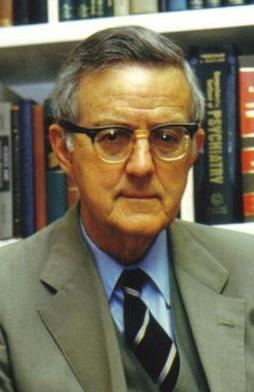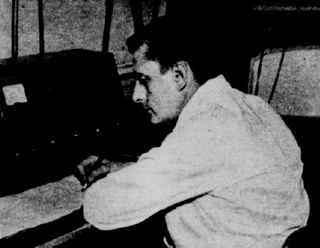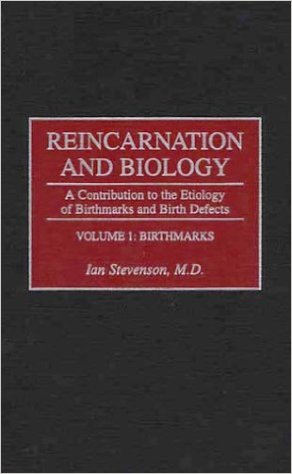Related Research Articles

Neuroscience is the scientific study of the nervous system, its functions, and its disorders. It is a multidisciplinary science that combines physiology, anatomy, molecular biology, developmental biology, cytology, psychology, physics, computer science, chemistry, medicine, statistics, and mathematical modeling to understand the fundamental and emergent properties of neurons, glia and neural circuits. The understanding of the biological basis of learning, memory, behavior, perception, and consciousness has been described by Eric Kandel as the "epic challenge" of the biological sciences.

Parapsychology is the study of alleged psychic phenomena and other paranormal claims, for example, those related to near-death experiences, synchronicity, apparitional experiences, etc. Criticized as being a pseudoscience, the majority of mainstream scientists reject it. Parapsychology has also been criticized by mainstream critics for claims by many of its practitioners that their studies are plausible despite a lack of convincing evidence after more than a century of research for the existence of any psychic phenomena.
Parapsychology is a field of research that studies a number of ostensible paranormal phenomena, including telepathy, precognition, clairvoyance, psychokinesis, near-death experiences, reincarnation, and apparitional experiences.

Frederic William Henry Myers was a British poet, classicist, philologist, and a founder of the Society for Psychical Research. Myers' work on psychical research and his ideas about a "subliminal self" were influential in his time, but have not been accepted by the scientific community.

Cognitive neuroscience is the scientific field that is concerned with the study of the biological processes and aspects that underlie cognition, with a specific focus on the neural connections in the brain which are involved in mental processes. It addresses the questions of how cognitive activities are affected or controlled by neural circuits in the brain. Cognitive neuroscience is a branch of both neuroscience and psychology, overlapping with disciplines such as behavioral neuroscience, cognitive psychology, physiological psychology and affective neuroscience. Cognitive neuroscience relies upon theories in cognitive science coupled with evidence from neurobiology, and computational modeling.

An out-of-body experience is a phenomenon in which a person perceives the world as if from a location outside their physical body. An OBE is a form of autoscopy, although this term is more commonly used to refer to the pathological condition of seeing a second self, or doppelgänger.

Michael A. Persinger was an American-Canadian professor of psychology at Laurentian University, a position he had held from 1971 until his death in 2018. His best-known hypotheses include the temporal lobes of the human brain as the central correlate for mystical experiences, subtle changes in geomagnetic activity as mediators of parapsychological phenomena, the tectonic strain within the Earth's crust as the source of luminous phenomena attributed to unidentified aerial objects, and the importance of specific quantifications for energy, photon flux density, and small shifts in magnetic field intensities for integrating cellular activity as well as human thought with universal phenomena.

Ian Pretyman Stevenson was a Canadian-born American psychiatrist, the founder and director of the Division of Perceptual Studies at the University of Virginia School of Medicine. He was a professor at the University of Virginia School of Medicine for fifty years. He was chair of their department of psychiatry from 1957 to 1967, Carlson Professor of Psychiatry from 1967 to 2001, and Research Professor of Psychiatry from 2002 until his death in 2007.

Functional neuroimaging is the use of neuroimaging technology to measure an aspect of brain function, often with a view to understanding the relationship between activity in certain brain areas and specific mental functions. It is primarily used as a research tool in cognitive neuroscience, cognitive psychology, neuropsychology, and social neuroscience.
Near-death studies is a field of psychology and psychiatry that studies the physiology, phenomenology and after-effects of the near-death experience (NDE). The field was originally associated with a distinct group of North American researchers that followed up on the initial work of Raymond Moody, and who later established the International Association for Near-Death Studies (IANDS) and the Journal of Near-Death Studies. Since then the field has expanded, and now includes contributions from a wide range of researchers and commentators worldwide. Research on near-death experiences is mainly limited to the disciplines of medicine, psychology and psychiatry.

Stanley Krippner is an American psychologist and parapsychologist. He received a B.S. degree from the University of Wisconsin–Madison in 1954 and M.A. (1957) and Ph.D. (1961) degrees from Northwestern University.
The philosophy of mind is a branch of philosophy that deals with the nature of the mind and its relation to the body and the external world.
Charles Bruce Greyson is an American psychiatrist and near-death experience researcher. During his research of near-death experiences, known as near-death studies, he has documented many accounts of near-death experiences, and has written many journal articles, as well as participated in media interviews on the subject, playing a crucial role in inviting broader cross-disciplinary scientific inquiry to the field.
Pam Reynolds Lowery, from Atlanta, Georgia, was an American singer-songwriter. In 1991, at the age of 35, she stated that she had a near-death experience (NDE) during a brain operation performed by Robert F. Spetzler at the Barrow Neurological Institute in Phoenix, Arizona. Reynolds was under close medical monitoring during the entire operation. During part of the operation she had no brain-wave activity and no blood flowing in her brain, which rendered her clinically dead. She claimed to have made several observations during the procedure which medical personnel reported to be accurate.
Satwant Pasricha is the head of Department of Clinical Psychology at NIMHANS, National Institute of Mental Health and Neurosciences at Bangalore. She also worked for a time at the University of Virginia School of Medicine in the USA. Pasricha investigates reincarnation and near-death experiences. Pasricha co-authored the 2011 book Making sense of near-death experiences, which was Highly Commended in the Psychiatry category at the 2012 British Medical Association Book Awards.
Andrew Newberg is an American neuroscientist who is a professor in the Department of Integrative Medicine and Nutritional Sciences and the director of research at the Marcus Institute of Integrative Health at Thomas Jefferson University Hospital, previously an adjunct professor of religious studies and a lecturer in psychology in the Biological Basis of Behavior Program at the University of Pennsylvania.
Some of the research that is conducted in the field of psychology is more "fundamental" than the research conducted in the applied psychological disciplines, and does not necessarily have a direct application. The subdisciplines within psychology that can be thought to reflect a basic-science orientation include biological psychology, cognitive psychology, neuropsychology, and so on. Research in these subdisciplines is characterized by methodological rigor. The concern of psychology as a basic science is in understanding the laws and processes that underlie behavior, cognition, and emotion. Psychology as a basic science provides a foundation for applied psychology. Applied psychology, by contrast, involves the application of psychological principles and theories yielded up by the basic psychological sciences; these applications are aimed at overcoming problems or promoting well-being in areas such as mental and physical health and education.

Where Reincarnation and Biology Intersect is a 1997 book by psychiatrist Ian Stevenson, published by Praeger. The book is about birthmarks and birth defects ostensibly associated with reincarnation. Where Reincarnation and Biology Intersect is written for the general reader and is a condensation of a two-part monograph Reincarnation and Biology: A Contribution to the Etiology of Birthmarks and Birth Defects.

Reincarnation and Biology: A Contribution to the Etiology of Birthmarks and Birth Defects is a 1997 two-part monograph written by psychiatrist Ian Stevenson and published by Praeger. Where Reincarnation and Biology Intersect is a condensation of the two books written for the general reader.

Irreducible Mind: Toward a Psychology for the 21st Century is a 2007 psychological book by Edward Francis Kelly, Emily Williams Kelly, Adam Crabtree, Alan Gauld, Michael Grosso, and Bruce Greyson. It attempts to bridge contemporary cognitive psychology and mainstream neuroscience with "rogue phenomena", which the authors argue exist in near-death experiences, psychophysiological influence, automatism, memory, genius, and mystical states.
References
- 1 2 "Stories by Edward F. Kelly". Scientific American. Retrieved 2024-05-17.
- 1 2 "Ed Kelly". University of Virginia School of Medicine. 2024.
- ↑ Ash, Mitchell G; Gundlach, Horst; Sturm, Thomas (2010). "Reviewed Work: Irreducible Mind: Toward a Psychology for the 21st Century by Edward F. Kelly, Emily Williams Kelly, Adam Crabtree, Alan Gauld, Michael Grosso, and Bruce Greyson". The American Journal of Psychology. 123 (2): 246–250. doi:10.5406/amerjpsyc.123.2.0246.
{{cite journal}}: CS1 maint: multiple names: authors list (link) - ↑ "Stories by Edward F. Kelly". Scientific American. Retrieved 2024-05-17.
- 1 2 3 4 5 6 Presti, David E., ed. (2018). Mind beyond Brain: Buddhism, Science, and the Paranormal. New York: Columbia University Press. ISBN 978-0-231-18956-9., pp. 97‒98
- ↑ "Neuroimaging studies of psi". University of Virginia School of Medicine. Retrieved June 22, 2024.
- ↑ Tucker, Jim B (June 2024). "Division of Perceptual Studies Newsletter" . Retrieved June 27, 2024.
- ↑ "Consciousness Unbound: Liberating Mind from the Tyranny of Materialism". Division of Perceptual Studies. Retrieved 2023-11-23.